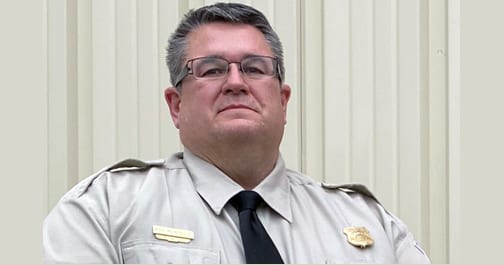N.C. Forest Service Gives Advice To Keep Trees Healthy, Withstand Storm’s Wind, Water
There are lots of good reasons to have trees in the landscape – they provide shade in the summer, homes and food for many animals as well as income for many landowners who manage larger tracts of woodland or tree farms.
And while it’s always important to keep an eye out for dead limbs or trees in a weakened state, weather forecasters and forestry experts are gearing up to ward off potential problems that Tropical Storm Elsa may create as it moves up the Atlantic Coast over the next day or so.
Rob Montague of the N.C. Forest Service was on Wednesday’s Town Talk to talk about the role of the forest service and precautions homeowners and landowners can take to avoid problems with trees when a storm blows in.
“Go ahead and get rid of hazard trees around your house before the storm comes through,” Montague advised. For those with larger tracts of woodlands or tree farms, it’s important to maintain a clear path to get in and out of the property.
He and his team serve Vance and Granville counties and they began planning early last week for the possible arrival of Elsa and the associated rain and wind that comes with a tropical storm or hurricane.
The forest service provides assistance to local emergency response teams as well as the N.C. Department of Agriculture during and after storms and help with tasks like clearing roads of fallen trees.
“We may be thrown into a lot of different roles if this storm proves bad,” Montague said. “The emergency response side of our job trains us” for such events as storms and wildfires.
The forest service work continues after a storm, he added, by helping landowners who may face a long-term recovery phase. The foresters help with technical assistance to get a forest management plan back on track, whether it’s a harvesting goal or getting a new forest growing.
The N.C. Forest Service can also help landowners with prescribed burns, a management strategy to keep pine stands healthy. These require careful planning, Montague said, from checking the weather forecast and knowing where the smoke will blow to having fire lines prepared ahead of the burn area. It shouldn’t be a matter of thinking at 9 a.m. one morning, ‘Hey, I’m going to light my trees on fire today,’ he added.
Prescribed burns are one strategy to cut down on the chance of wildfires, Montague said. May was a dry month and he said the forest service responded to quite a few wildfires with local fire departments. “Each of us shows up with different tools,” he explained. The fire departments have the bigger trucks and gear, and the forest service brings along smaller brush trucks and engines that allow them to get in tighter spaces. Bulldozers and airplanes that can drop water from above are also resources the forest service can call on.
Whether it’s wind and rain from a summer storm or a grass fire when conditions are extremely dry, the N.C. Forest Service provides training for its foresters and technical assistance for residents to be prepared.
“We’ve got a great group of folks ready, willing and dedicated to help out,” Montague said.
To learn more, visit www.ncforestservice.org, call 919.693.3154 or email rob.montague@ncagr.gov.
For complete details and audio click play.
